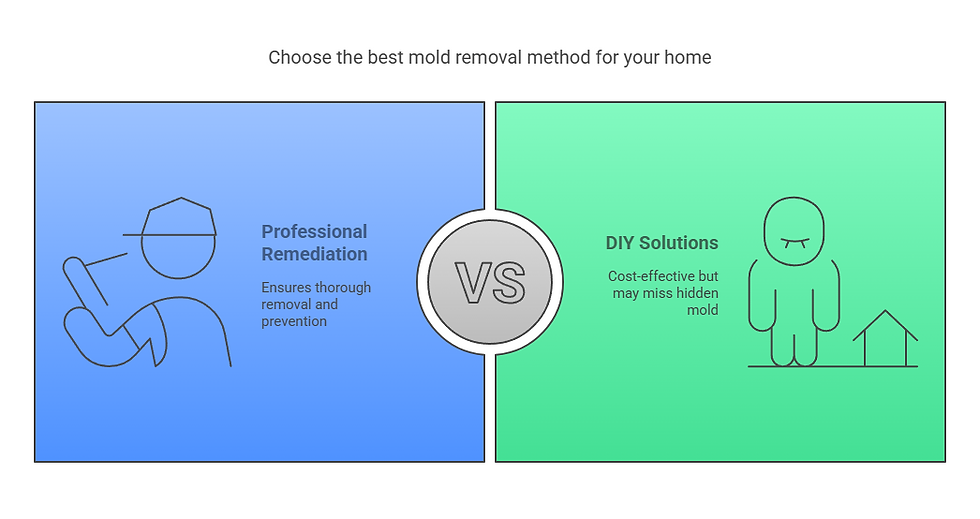
Introduction
Mold is more than just an eyesore—it’s a hidden health hazard that can cause a range of medical issues. Whether it’s visible or lurking behind walls, mold exposure can affect your respiratory system, immune function, and overall well-being. Many people live with chronic symptoms without realizing mold could be the root cause. Understanding the risks and taking proactive steps to eliminate mold is essential for a healthier home and body.
The Health Effects of Mold Exposure
Mold releases spores into the air, which can be inhaled or come into contact with the skin. While some people may have mild reactions, prolonged exposure can lead to severe health complications, especially for children, the elderly, and those with weakened immune systems.
Respiratory Issues
Persistent coughing and wheezing
Shortness of breath and chest tightness
Sinus congestion and throat irritation
Increased severity of asthma symptoms
Chronic bronchitis or pneumonia
Neurological and Cognitive Effects
Brain fog and memory problems
Difficulty concentrating
Chronic headaches and migraines
Dizziness and vertigo
Immune System Complications
Increased susceptibility to infections
Frequent colds and flu-like symptoms
Autoimmune flare-ups
Skin and Eye Irritation
Rashes, hives, or itching
Watery, red, or irritated eyes
Chronic Fatigue and Muscle Pain
Unexplained exhaustion
Joint stiffness and muscle aches
Who Is Most at Risk?
While mold exposure can affect anyone, certain individuals are more vulnerable, including:
Children and infants
Elderly individuals
People with asthma, allergies, or respiratory conditions
Those with compromised immune systems
How to Identify Mold in Your Home
Mold thrives in damp, humid environments. Common signs of mold growth include:
A musty or mildew-like odor
Visible black, green, or white mold spots
Water damage, leaks, or condensation buildup
Worsening allergy symptoms indoors
If you suspect mold but can’t see it, professional mold inspections can help detect hidden growth behind walls, under flooring, and in HVAC systems.
Steps to Remove Mold and Protect Your Health
If you discover mold in your home, taking immediate action is crucial. Here’s how to eliminate mold and prevent future exposure:
1. Professional Mold Remediation
Hiring experts ensures thorough mold removal and prevents it from spreading further.
2. Improve Ventilation and Reduce Humidity
Use dehumidifiers to keep indoor humidity levels below 50%.
Install exhaust fans in bathrooms, kitchens, and basements.
3. Fix Water Leaks Promptly
Mold thrives in damp environments—address plumbing issues, roof leaks, and foundation cracks as soon as possible.
4. Use HEPA Air Purifiers
High-efficiency particulate air (HEPA) filters trap airborne mold spores and improve indoor air quality.
5. Clean with Mold-Resistant Products
Use natural solutions like vinegar and baking soda or EPA-approved mold removal products to clean affected areas.
Conclusion
Mold exposure is a serious health risk, but with proper awareness and action, you can protect yourself and your family. If you’re experiencing unexplained health issues, it may be time to inspect your home for mold. Addressing the problem early can prevent long-term health complications and create a safer living environment.
At Above All Mold Removal, we specialize in mold remediation and indoor air quality solutions. Contact us today for a professional mold inspection and take the first step toward a healthier home.

Bình luận